Moodubidire: The Department of MBA at Alva’s Institute of Engineering & Technology organized 'Budget Insights 2025', a panel discussion on the Union Budget 2025, at Dr. VS Acharya Hall on Friday.
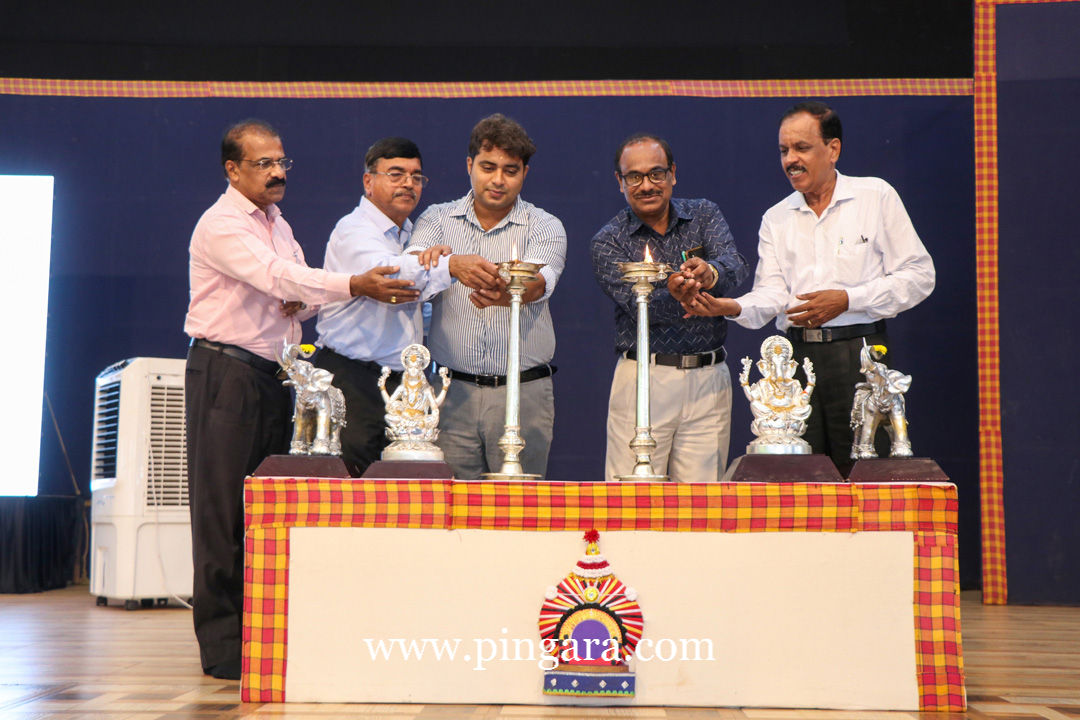
In his keynote address, Dr. L.H. Manjunath, Former Executive Director of Kshethra Dharmasthala Rural Development Project (SKDRDP), described this year’s budget as insightful in many ways. Speaking on India’s vision of becoming a developed nation by 2047, he stressed the need for accelerated economic growth. "If India aspires to become the ‘Viksit Bharat’ and a global leader by 2047, a consistent GDP growth rate of 6.7% to 7% will not suffice. We need to grow at a rate of 12% to 14% to achieve this vision, which is not feasible with the current budget," he remarked. He highlighted the budget’s focus on eradicating poverty and improving the quality of education and healthcare.
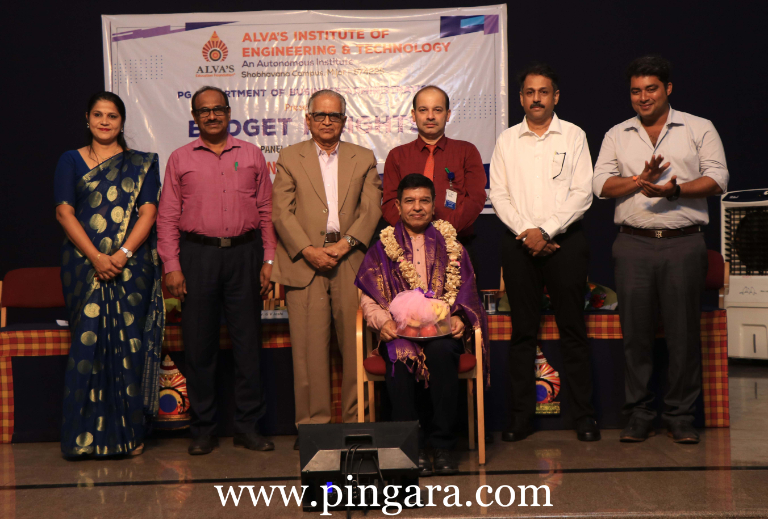
Dr. Manjunath also underscored the critical role of bureaucracy in India’s governance. "Bureaucracy is the backbone of our democratic setup and the key link ensuring uniform growth across sectors. However, despite significant government spending on education and healthcare, benefits often fail to reach the needy due to systemic inefficiencies in the bureaucratic system. Effective governance requires a robust and responsive bureaucracy," he said.
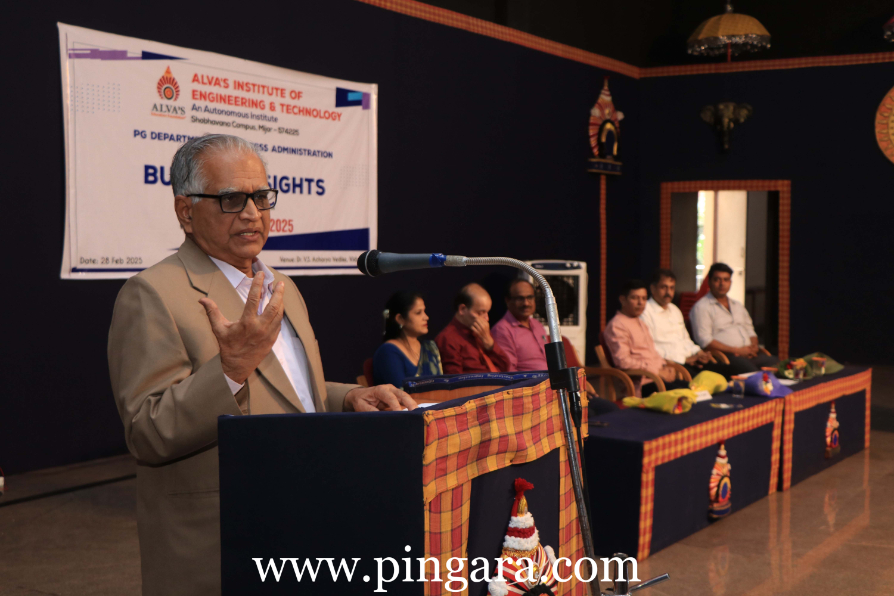
Touching upon microfinance as a tool for poverty alleviation, Dr. Manjunath described its impact over the past 25 years in India. "Microfinance ensures financial inclusion by bringing credit to the doorstep of the poor. With an outstanding portfolio of Rs4.5 lakh crore, it stands as one of the world’s largest poverty elimination programs," he noted. He also highlighted SKDRDP’s role in strengthening the self-help group (SHG) movement in Karnataka. "Since its inception in 2001, the SHG network in the state has grown to 6.5 lakh groups, benefiting around 60 lakh families," he added.
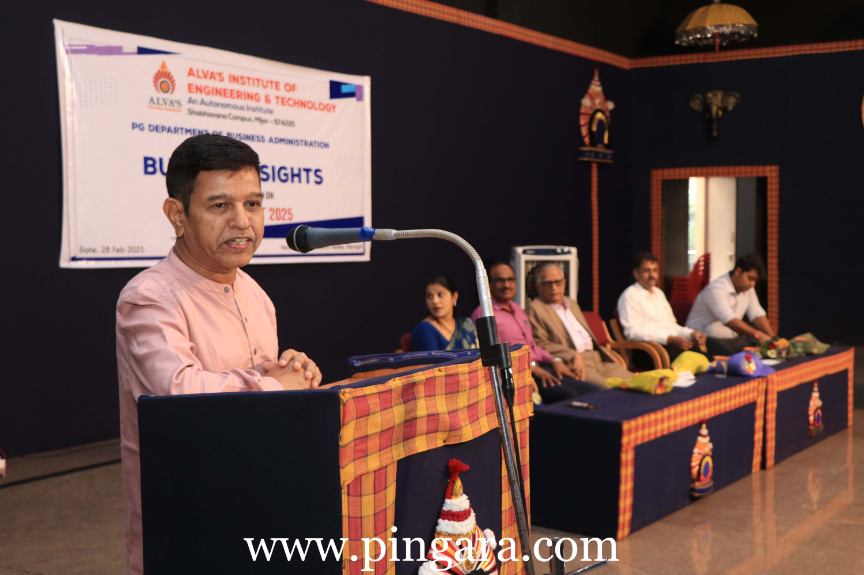
Vivek Alva, Management Trustee of Alva’s Education Foundation, emphasized the importance of balanced economic growth and professional education beyond traditional fields like engineering and medicine. "Economic growth is essential, but a 6.5% GDP growth alone will not make India a developed nation. We must aim for a higher growth rate that ensures sustainability and social responsibility. Civic responsibility among citizens is crucial for this transformation," he said.
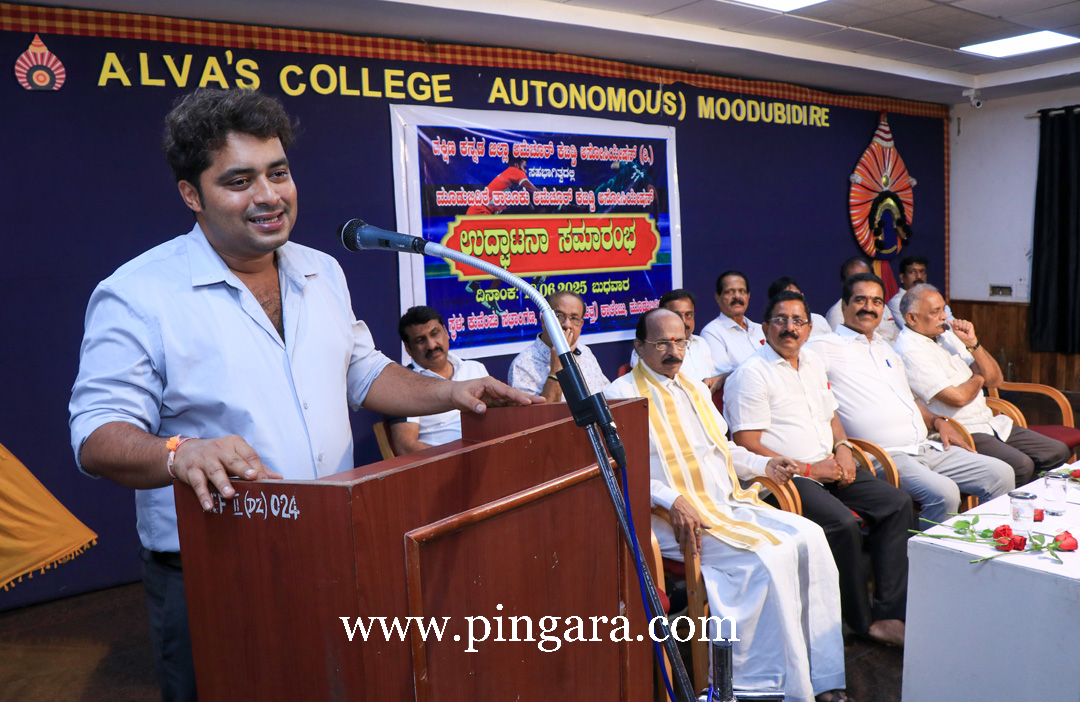
Alva elaborated on how India needs more than just skilled doctors and engineers; it requires professionals well-versed in finance, economics, and business. "Professionalism comes from knowledge, exposure, and commitment, not from the attire. We need commerce students who understand the intricacies of finance and economics to drive our future growth," he said.
In the course of his address, Alva also shared his thoughts on the growing influence of social media. "Social media plays a significant role in shaping perceptions," he said, adding that one must not fall prey to the exaggerated narratives often seen on these platforms. Alva expressed concerns over the way events, like the Kumbh Mela, are often sensationalized on social media with misleading or unbalanced portrayals.
Drawing from his own experience, Alva recounted his visit to the Mahakumbh Mela in Prayagraj, highlighting the economic and social benefits that the event has generated. He cited the example of Uttar Pradesh’s investment in the Mahakumbh Mela, which saw the state spend Rs3,700 crores on the event. In return, the state garnered a direct benefit of ₹25,000 crores, while the entire country profited to the tune of nearly Rs3 lakh crores. "The Kumbh Mela is often reduced to social media hype, with bizarre labels like ‘IIT Baba’ or ‘cat-eyed Mona Lisa,’ but the true impact is far more profound," Alva said.
He highlighted the unity that the Mahakumbh Mela fosters among the diverse communities of India, saying, "The change seen over the past 8 years in Prayagraj is phenomenal. The Mahakumbh Mela has brought all of India together. Despite the region's diverse religious makeup, no communal clashes have been reported during the event, showcasing the power of unity among Hindus and Muslims alike."
In reflecting on the socio-economic impact of the Mela, Alva pointed out how it provides ample job opportunities to the unemployed and even people who had small businesses, like those using scooters for transport, can earn up to Rs 5,000 a day with just Rs 100 worth of petrol. He emphasized that such economic opportunities were critical in uplifting local communities and generating national growth.
He also praised Karnataka’s Shakti scheme, which provides free bus travel for women on state-run buses, for contributing significantly to development alongside other guarantee schemes in the state. "The government should not hesitate to spend money on these kinds of programs for sustainable growth" Mr. Alva said.
The event featured three panel discussions exploring different facets of the Union Budget 2025. The first panel, 'Budget 2025 and Beyond: Transforming India’s Infrastructure,' was moderated by Dr. Jnaneshwar Maroor Pai, Professor at Justice KS Hegde Institute of Management, NITTE. Panelists included D.B. Mehta, Retired IRS officer, and CA Naveen Narayan, a practicing Chartered Accountant. The discussion focused on the budget’s provisions for infrastructure development and their long-term impact on national growth.
The second panel, 'Budget 2025: Game Changer for MSMEs & Startups?' was moderated by Dr. G.V. Joshi and featured Athmika Amin, Executive Director of JV Springs, and Nivedhan Nimphe, CEO of Areca Tea. The panel delved into how the budget supports micro, small, and medium enterprises and startup ecosystems, emphasizing financial incentives and policy reforms.
The third panel, 'From Amrit Kaal to Viksit Bharat: How Budget 2025 Shapes India’s Future,' was moderated by Dr. Vishnu Prasanna K.N., Professor at Alva’s Institute of Engineering & Technology. Panelists included S.S. Nayak, Former Chairman of ICAI, Mangalore, and Dr. T. Mallikarjunappa, Professor at Justice KS Hegde Institute of Management, NITTE. The discussion provided insights on how the budget aligns with India’s long-term developmental vision and the steps needed to achieve the nation’s goals by 2047.
AIET MBA Dept Head Priya Sequiera, Alva’s College (Autonomous) Principal Dr Kurian present among others.

